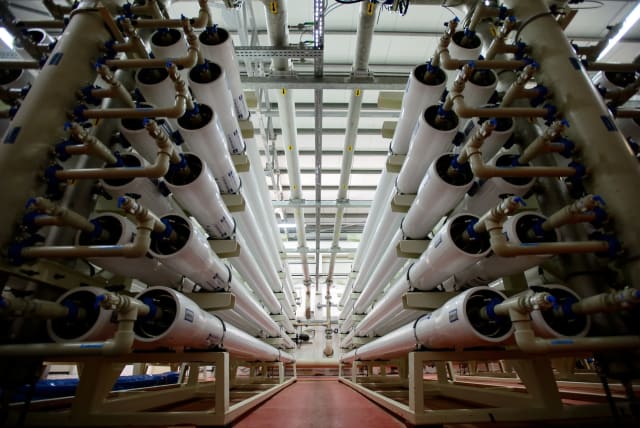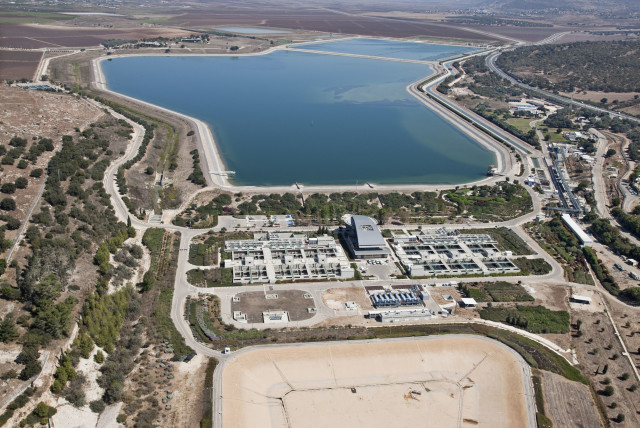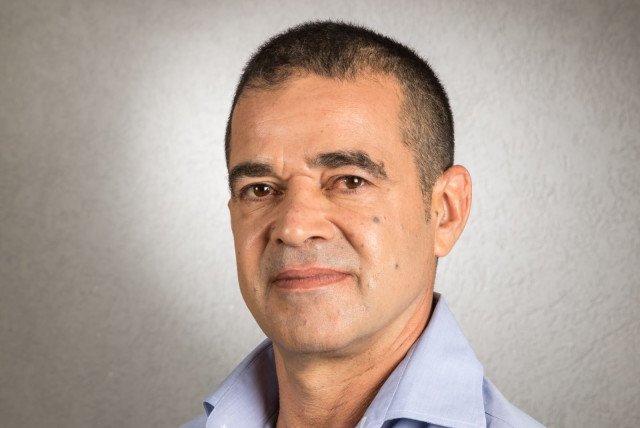‘There will be no water shortage in Israel’

Mekorot CEO Amit Lang discusses the current state of Israel’s water resources, future plans, global interest in Israeli technology, and projects to optimize energy consumption.
‘Israel has no lack of water and there will also be no shortage. Over the past twenty years, the Israeli government has managed this issue wisely,” explains Mekorot CEO, Amit Lang, in a special interview for Israel’s 75th Independence Day.
“The era of desalination, which entered our lives two decades ago, promises us a sufficient amount of water for years to come, despite the visible changes in the near future,” Lang says. “However, water is an expensive business, the desalination process itself is expensive, and therefore, one of our challenges is to find the most energy-efficient way to deliver water.”
Lang, who has extensive management experience, was appointed CEO of Mekorot, the National Water Company of Israel, in April 2022. During his tenure, Mekorot was recognized as one of the top 60 water companies in the world, primarily due to their high reliability in water supply and their efforts to promote technology and innovation.
“Mekorot is developing the national water system, costing over 1.5 billion shekels, which is able to provide us with a secure future,” explains Lang, “In the area of water supply, Mekorot is the best company in the world when it comes to reliability and efficiency. In the world’s leading water transport systems, there is a loss of between 10% to 30%, while ours is less than 3%. The challenge is to maintain this, and the way to do that is through technological development.”
Lang adds that another challenge they have is to ensure reliable water supply, so that it reaches all regions in Israel, even the most remote points on the map. “There are still a limited number of areas disconnected from the national system, relying on local sources such as reservoirs or wells, but there are plans in place for this matter, and I hope that in the coming years we will be able to announce that every settlement on the map in Israel is connected to the national system.”
“Another issue that we are investing in is the safety and security of the water system. We live in a geographical environment with neighbors who are not so friendly towards us, so we need to ensure that at every point in time we know the water quality, and that we are protected from any malicious sabotage and other factors that intend to interfere with our systems, whether through cyber or physical means. We invest a lot of time and resources in this area, along with the integration of a lot of technology.”
Lang emphasizes that Mekorot, as a government company, makes intensive use of innovation with a very respectable investment portfolio. “We are constantly exploring new technologies. When we come across companies or (new) developments with significant potential for our operations, we invest or alternatively also buy the service or product,” he adds. “There is a lot of technology in the water supply system of Mekorot which is very advanced and almost entirely automated, without human contact. We have not made a specific decision to avoid investment in foreign companies, but in Israel there is innovation, not only in the water sector, and probably many more Israeli companies have reached out to us than foreign ones, and those that we selected are Israeli companies.”
It is that Israeli innovation, which is reflected by the performance of Mekorot in the field, which has caused and continues to cause heads of state and leading organizations worldwide to seek solutions specifically in Israel.
“This is especially true today, with the global climate crisis, there are countries that did not think they would have to deal with water scarcity,” says Lang. “In the past, countries like us, with a basic desert climate, faced water supply problems. However, the global crisis has caused countries in Central Europe, like Italy, England, and France, which previously did not have water supply problems, to deal with crises they never imagined.
“In Israel, water management is very efficient and optimal,” he explains. “Other countries have not invested enough in infrastructure over the years, and now have a problem finding solutions to move water from place to place. They like to look at our national system, and how it is built, because there is nothing like it. Throughout the world, most water systems are local, not national.
“In addition, we are the only company in the world that manages different water sources in the same system. You have to remember that rainwater, desalinated water or water from the Kinneret are not the same water. It takes ability, experience, and knowledge to manage all of these water sources in the same system. We know how to manage different types of water and bring them to the required quality for drinking water, all within the same system.”
“The uniqueness of Mekorot is known worldwide,” emphasizes Lang, as he explains the level of interest from various countries and the increasing number of inquiries. “Therefore, a country like Morocco, which is entering the era of desalination, is in talks with us on how to plan it properly so that its system can use treated water. With Bahrain, for example, we have projects to improve control and monitoring systems, and we have even planned a future desalination facility for them.”
He says that in Argentina, Mekorot is working with a number of provinces to rebuild their water systems from scratch. “They also have old and outdated systems, and as a country they rely on rainwater, and we know how to manage water supply even when it (the water) is infrequent, through reservoirs, proper management, optimization, and the like.
“We are also working in Azerbaijan. We are managing their entire agricultural water economy, as their infrastructure is very outdated. Also in India, we have done two projects for the water economy master plan in certain areas, and there is interest from groups in Italy, and in general, there are always inquiries.”
Mekorot, by virtue of their activity, is the largest electricity consumer in the system, which requires them to constantly work to improve the company’s energy efficiency to keep prices accessible to consumers. “This has a significant impact because the main cost in water supply is energy, and any way we can get cheaper energy will affect water prices,” says Lang. “However, it’s important to remember that Mekorot only makes up about 20 percent of the water tariff, so changes we make won’t affect the scale one-to-one. But we’re still talking about a very large expense, so we’re trying to do the maximum, using the most advanced technology available, to consume as little energy as possible while still providing the water we need. Energy efficiency means performing a lot of smart actions, such as choosing the most efficient resources, proper time management and asset utilization, like utilizing the company’s land to carry out projects for the production of cheap and renewable energy.”
Lang explains that through solar projects and collaborations with existing companies in the market, they can lower the cost of energy, and in addition to existing projects, they have “beautiful plans” with of goal to continue to optimize the system for the benefit of all residents of the State of Israel.■
This article was written in cooperation with Mekorot.
Jerusalem Post Store
`; document.getElementById("linkPremium").innerHTML = cont; var divWithLink = document.getElementById("premium-link"); if (divWithLink !== null && divWithLink !== 'undefined') { divWithLink.style.border = "solid 1px #cb0f3e"; divWithLink.style.textAlign = "center"; divWithLink.style.marginBottom = "15px"; divWithLink.style.marginTop = "15px"; divWithLink.style.width = "100%"; divWithLink.style.backgroundColor = "#122952"; divWithLink.style.color = "#ffffff"; divWithLink.style.lineHeight = "1.5"; } } (function (v, i) { });



